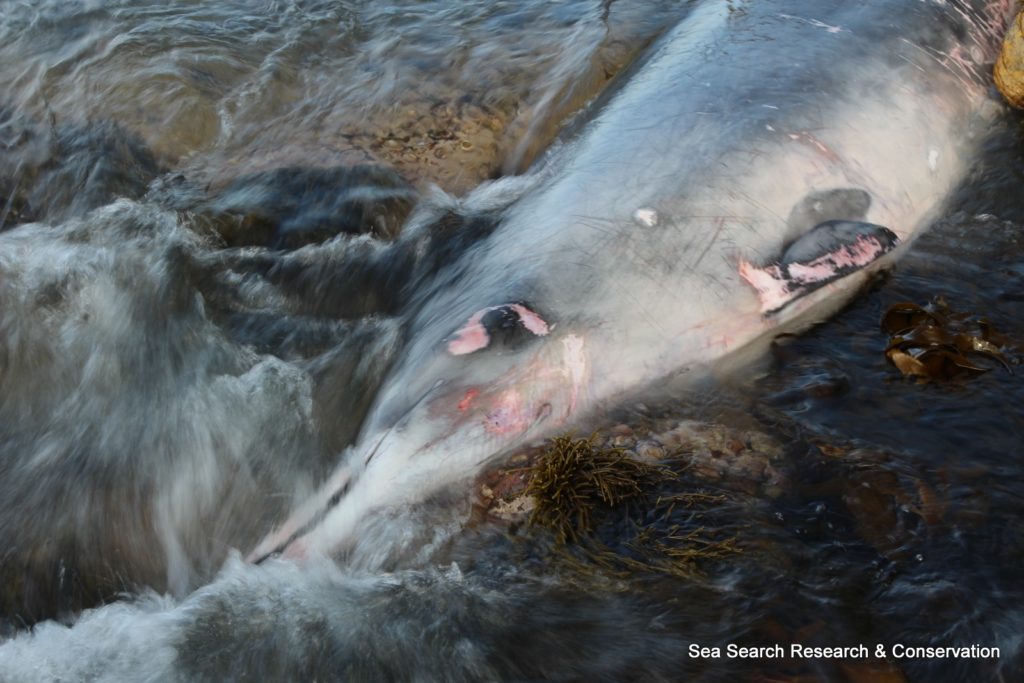Three Gray’s beaked whales were stranded at Cape Point over the weekend with SANParks, NSRI and a number of relevant organisations responding to the scene to assist.
Upon arrival at the scene, two adult whales were found along with a calf. Both adults were dead on arrival and the calf died at the scene after a few hours.
Gray’s beaked whales are rarely seen as they are deep water specialists, spending most of their time away from the view of the public. This particular species (Mesoplodon grayi) is one of the more common whale species along the SA coast. According to Sea Search Research & Conservation they are one of the few whales with “normal” teeth instead of more tusk-like teeth used in male on male competition.

The bodies of the whales that washed up were visibly battered and appeared to have multiple wounds.
Sea Search Research & Conservation says it is not clear yet what caused their deaths or wounds.
“No real idea on reasons. Group strandings in this species are unusual but they do happen. Nothing suspicious going on at sea that I am aware of (navy or seismics) so we strongly suspect natural causes. One sick whale, likely the male with the broken jaw, clearly stranded first judging from condition. The other and the calf followed and got trapped. They are deep water species so they would be easily confused in shallow water,” says Dr Simon Elwen – Director, Sea Search Research and Conservation and Research Associate with Stellenbosch University.
“In the hope of recording sounds made by the calf we headed down but we got there too late for that. We grabbed a few pics while there as the DEA (government) team were heading down the next morning for a full necropsy,” said Sea Research on Facebook.
Gray’s beaked whales display more complete social structures than other species. When they do occur, strandings and beachings often show groupings of these whales together rather than alone like other species.

Stay up to date with information on Sea Search Research & Conservation and follow them on Facebook at Sea Search.
Pictures: Facebook/Sea Search Research & Conservation

